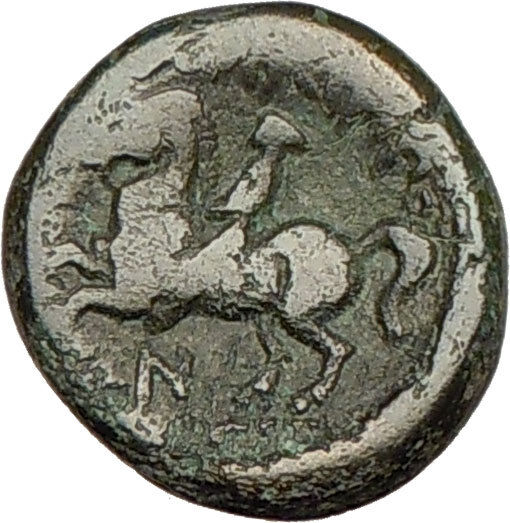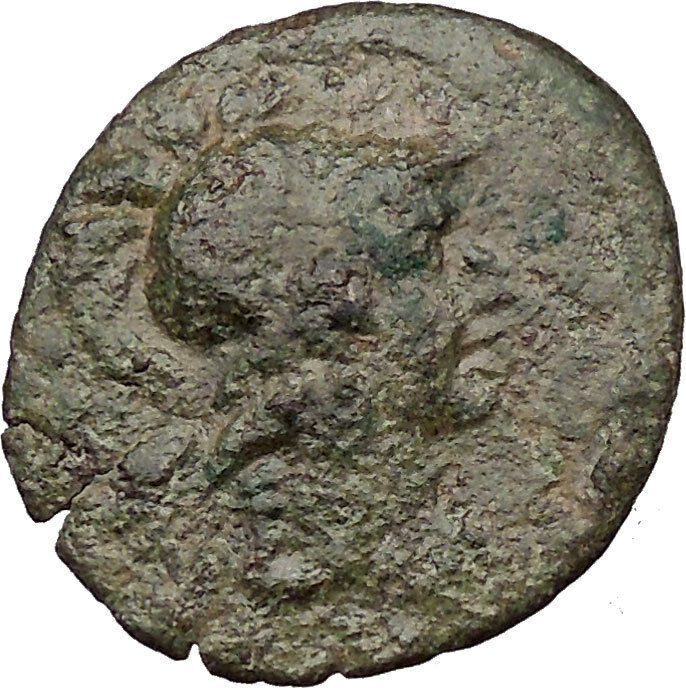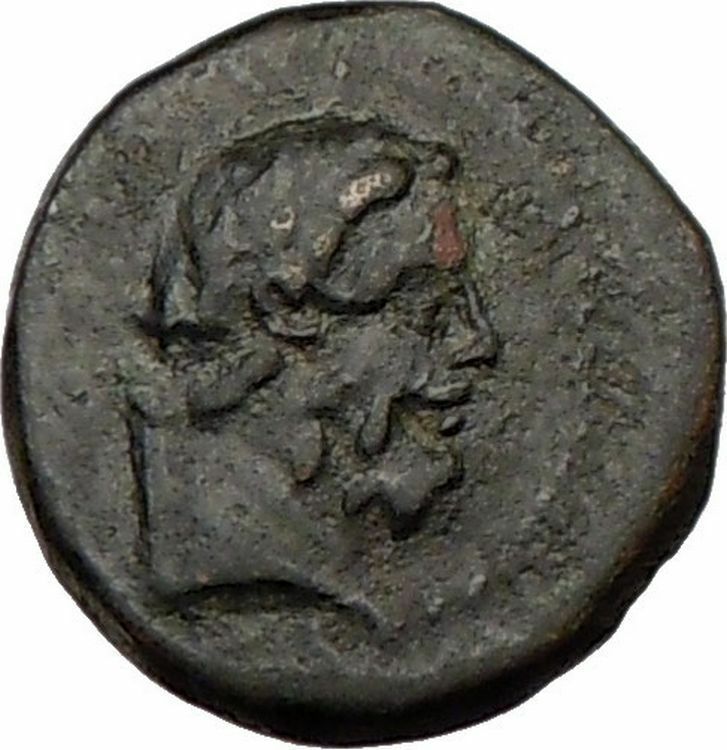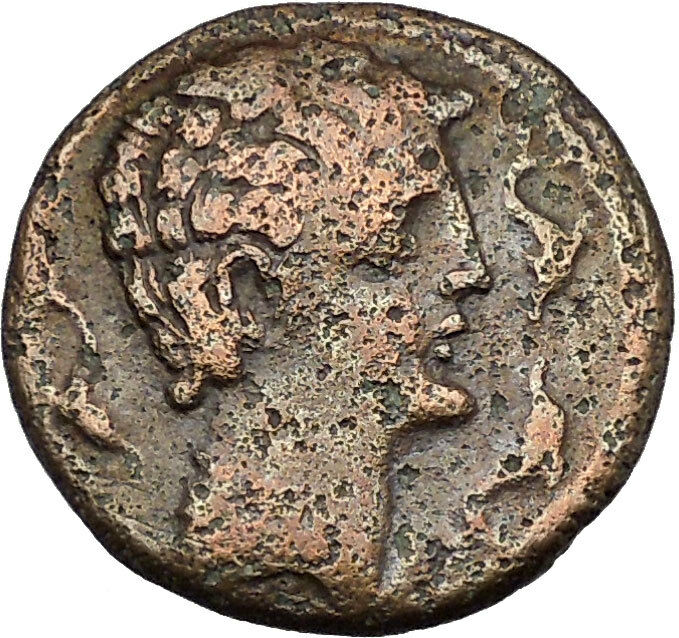|
Greek Coin of
Macedonian Kingdom
Philip V – King: 221-179 B.C. to Perseus – King: 179-168 B.C.
Bronze 18mm (3.88 grams) Struck circa time of Philip V & Perseus, circa 185-168 B.C.
Reference: SNG Copenhagen 1295 var.; AMNG I, 38
Head of Hercules right wearing lion-skin headdress.
MAKE-ΔONΩN, Horse galloping right; monogram in field to right.
Son of Demetrios II, Philip V came to power in 221 B.C. on the death of Antigonos Doson. He was a vigorous ruler and maintained the power of the Macedonian kingdom in the earlier part of his reign. However, he made the mistake of arousing the enmity of the Romans, and in 197 B.C. his power was crushed at the battle of the Kynoskephalai by the Roman general T. Quinctius Flamininus. After this his power and territory were severely curtailed by Rome, and the days of the Macedonian kingdom were numbered.
The eldest son of Philip V, Perseus was the last king of Macedon. He inherited a kingdom already largely dependent on Rome, but his policies aroused Roman suspicions and armed conflict became inevitable. At the battle of Pydna, in 168 B.C., Perseus lost his kingdom and he died two years later as an exile in Italy.
You are bidding on the exact item pictured, provided with a Certificate of Authenticity and Lifetime Guarantee of Authenticity.
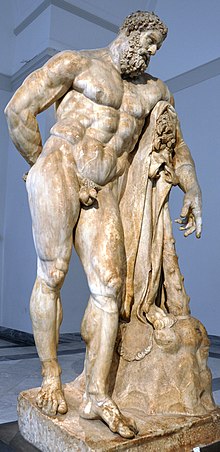 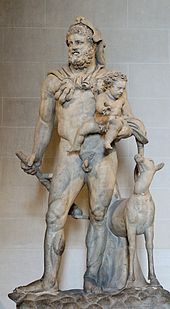 Heracles, born Alcaeus (Alkaios) or Alcides, was a divine hero in Greek mythology, the son of Zeus and Alcmene, foster son of Amphitryon and great-grandson and half-brother (as they are both sired by the god Zeus) of Perseus. He was the greatest of the Greek heroes, a paragon of masculinity, the ancestor of royal clans who claimed to be Heracleidae and a champion of the Olympian order against chthonic monsters. In Rome and the modern West, he is known as Hercules, with whom the later Roman emperors, in particular Commodus and Maximian, often identified themselves. The Romans adopted the Greek version of his life and works essentially unchanged, but added anecdotal detail of their own, some of it linking the hero with the geography of the Central Mediterranean. Details of his cult were adapted to Rome as well. Heracles, born Alcaeus (Alkaios) or Alcides, was a divine hero in Greek mythology, the son of Zeus and Alcmene, foster son of Amphitryon and great-grandson and half-brother (as they are both sired by the god Zeus) of Perseus. He was the greatest of the Greek heroes, a paragon of masculinity, the ancestor of royal clans who claimed to be Heracleidae and a champion of the Olympian order against chthonic monsters. In Rome and the modern West, he is known as Hercules, with whom the later Roman emperors, in particular Commodus and Maximian, often identified themselves. The Romans adopted the Greek version of his life and works essentially unchanged, but added anecdotal detail of their own, some of it linking the hero with the geography of the Central Mediterranean. Details of his cult were adapted to Rome as well.
Extraordinary strength, courage, ingenuity, and sexual prowess with both males and females were among the characteristics commonly attributed to him. Heracles used his wits on several occasions when his strength did not suffice, such as when laboring for the king Augeas of Elis, wrestling the giant Antaeus, or tricking Atlas into taking the sky back onto his shoulders. Together with Hermes he was the patron and protector of gymnasia and palaestrae. His iconographic attributes are the lion skin and the club. These qualities did not prevent him from being regarded as a playful figure who used games to relax from his labors and played a great deal with children. By conquering dangerous archaic forces he is said to have “made the world safe for mankind” and to be its benefactor. Heracles was an extremely passionate and emotional individual, capable of doing both great deeds for his friends (such as wrestling with Thanatos on behalf of Prince Admetus, who had regaled Heracles with his hospitality, or restoring his friend Tyndareus to the throne of Sparta after he was overthrown) and being a terrible enemy who would wreak horrible vengeance on those who crossed him, as Augeas, Neleus and Laomedon all found out to their cost.
Philip V (Greek: Φίλιππος Ε΄) (238 BC – 179 BC) was King of Macedon from 221 BC to 179 BC. Philip’s reign was principally marked by an unsuccessful struggle with the emerging power of Rome. Philip was attractive and charismatic as a young man. A dashing and courageous warrior, he was inevitably compared to Alexander the Great and was nicknamed the darling of Hellas (Greek: η αγάπη μου για Ελλάδα).
Early life
The son of Demetrius II and Chryseis, Philip was nine years old at his father’s death in 229 BC. He had an elder paternal half sister called Apame. His cousin, Antigonus Doson, administered the kingdom as regent until his death in 221 BC when Philip was seventeen years old.
On his ascent to the throne, Philip quickly showed that while he was young, this did not mean that Macedon was weak. In the first year of his rule, he pushed back the Dardani and other tribes in the north of the country.
The Social War
Main article: Social War (220-217 BC)
In the Social War (220 BC-217 BC), the Hellenic League of Greek states was assembled at Philip V’s instigation in Corinth. He then led the Hellenic League in battles against Aetolia, Sparta and Elis. At the same time he was able to stamp on his own authority amongst his own ministers. His leadership during the Social War made him well-known and respected both within his own kingdom and abroad.
First Macedonian War
Main article: First Macedonian War
After the Peace of Naupactus in 217 BC, Philip V tried to replace Roman influence along the eastern shore of the Adriatic, forming alliances or lending patronage to certain island and coastal provinces such as Lato on Crete. He first tried to invade Illyria from the sea, but with limited success. His first expedition in 216 BC had to be aborted, while he suffered the loss of his whole fleet in a second expedition in 214 BC. A later expedition by land met with greater success when he captured Lissus in 212 BC.
In 215 BC he entered into a treaty with Hannibal, the Carthaginian general then in the middle of an invasion of Roman Italy. Their treaty defined spheres of operation and interest, but achieve little of substance or value for either side. Philip became heavily involved in assisting and protecting his allies from attacks from the Spartans, the Romans and their allies.
Rome’s alliance with the Aetolian League in 211 BC effectively neutralised Philip’s advantage on land. The intervention of Attalus I of Pergamum on the Roman side further exposed Philip’s position in Macedonia.
Philip was able to take advantage of the withdrawal of Attalus from the Greek mainland in 207 BC, along with Roman inactivity and the increasing role of Philopoemen, the strategos of the Achaean League. After sacking Thermum, the religious and political centre of Aetolia, Philip was able to force the Aetolians to accept his terms in 206 BC. The following year he was able to conclude the Peace of Phoenice with Rome and its allies.
Expansion in the Aegean
Main article: Cretan War
Following an agreement with the Seleucid king Antiochus III to capture Egyptian held territory from the boy king Ptolemy V, Philip was able to gain control of Egyptian territory in the Aegean Sea and in Anatolia. This expansion of Macedonian influence created alarm in a number of neighbouring states, including Pergamum and Rhodes. Their navies clashed with Philip’s off Chios and Lade (near Miletus) in 201 BC. At around the same time, the Romans were finally the victorious over Carthage.
Second Macedonian War
Main article: Second Macedonian War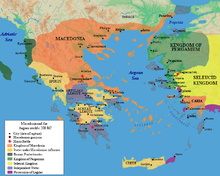 Kingdom of Macedon on the eve of the Second Macedonian War, circa 200 BC. Kingdom of Macedon on the eve of the Second Macedonian War, circa 200 BC.
In 200 BC, with Carthage no longer a threat, the Romans declared war on Macedon arguing that they were intervening to protect the freedom of the Greeks. After campaigns in Macedonia in 199 BC and Thessaly in 198 BC, Philip and his Macedonian forces were decisively defeated at the Battle of Cynoscephalae in 197 BC. The war also proved the superiority of the Roman legion over the Greek phalanx formation.
Alliance with Rome
Main article: Roman-Syrian War
The resulting peace treaty between Philip V and the Romans confined Philip to Macedonia and required him to pay 1000 talents indemnity, surrender most of its fleet and provide a number of hostages, including his younger son Demetrius. After this, Philip cooperated with the Romans and sent help to them in their fight against the Spartans under King Nabis in 195 BC. Philip also supported the Romans against Antiochus III (192 BC-189 BC).
In return for his help when Roman forces under Publius Cornelius Scipio Africanus and his brother Lucius Cornelius Scipio Asiaticus moved through Macedon and Thrace in 190 BC, the Romans forgave the remaining indemnity that he had to pay and his son Demetrius was freed. Philip then focused on consolidating power within Macedon. He reorganised the country’s internal affairs and finances, mines were reopened and a new currency was issued.
Final years
However, Rome continued to be suspicious of Philip’s intentions. Accusations by Macedon’s neighboring states, particularly Pergamum, led to constant interference from Rome. Feeling the threat growing that Rome would invade Macedon and remove him as king, he tried to extend his influence in the Balkans by force and diplomacy. However, his efforts were undermined by the pro-Roman policy of his younger son Demetrius, who was encouraged by Rome to consider the possibility of succession ahead of his older brother, Perseus. This eventually led to a quarrel between Perseus and Demetrius which forced Philip to reluctantly decide to execute Demetrius for treason in 180 BC. This decision had a severe impact on Philip’s health and he died a year later at Amphipolis.
He was succeeded by his eldest son Perseus, who ruled as the last king of Macedon.
|






 Heracles, born Alcaeus (Alkaios) or Alcides, was a divine hero in Greek mythology, the son of Zeus and Alcmene, foster son of Amphitryon and great-grandson and half-brother (as they are both sired by the god Zeus) of Perseus. He was the greatest of the Greek heroes, a paragon of masculinity, the ancestor of royal clans who claimed to be Heracleidae and a champion of the Olympian order against chthonic monsters. In Rome and the modern West, he is known as Hercules, with whom the later Roman emperors, in particular Commodus and Maximian, often identified themselves. The Romans adopted the Greek version of his life and works essentially unchanged, but added anecdotal detail of their own, some of it linking the hero with the geography of the Central Mediterranean. Details of his cult were adapted to Rome as well.
Heracles, born Alcaeus (Alkaios) or Alcides, was a divine hero in Greek mythology, the son of Zeus and Alcmene, foster son of Amphitryon and great-grandson and half-brother (as they are both sired by the god Zeus) of Perseus. He was the greatest of the Greek heroes, a paragon of masculinity, the ancestor of royal clans who claimed to be Heracleidae and a champion of the Olympian order against chthonic monsters. In Rome and the modern West, he is known as Hercules, with whom the later Roman emperors, in particular Commodus and Maximian, often identified themselves. The Romans adopted the Greek version of his life and works essentially unchanged, but added anecdotal detail of their own, some of it linking the hero with the geography of the Central Mediterranean. Details of his cult were adapted to Rome as well. Kingdom of Macedon on the eve of the Second Macedonian War, circa 200 BC.
Kingdom of Macedon on the eve of the Second Macedonian War, circa 200 BC.

